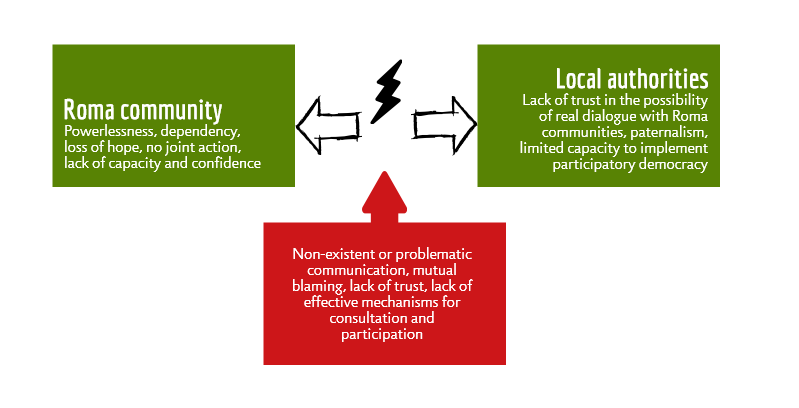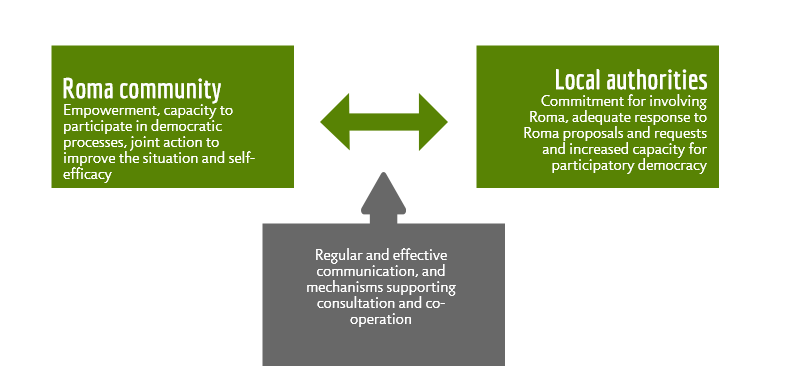ROMED2 - Democratic governance and community participation through mediation
ROMED2 ‘Democratic Governance and Roma Community Participation through Mediation’ emerged from the learnings of ROMED1. It invested in local processes aimed at enhancing the participation of Roma in local decision making. It stimulated the self-organisation of Roma communities into Community Action Groups (CAGs). Through a structured process of dialogue and cooperation with local authorities, the CAGs identified the priorities of the community and suggested initiatives for addressing them.
It is being implemented from April 2013 to February 2017 and has been active in 54 municipalities in 11 countries: Bosnia and Herzegovina, Bulgaria, Germany, Greece, Hungary, Italy, Portugal, Romania, the Slovak Republic, the "former Yugoslav Republic of Macedonia" (FYRoM), and Ukraine. For full details on the implementation of ROMED2 in these countries, please visit the Countries in ROMED2 section of our website, or get in touch with the National Support Teams.
THE ROMED2 APPROACH
In many municipalities with compact Roma communities the current situation is characterised by:
- unequal and unfair distribution of community resources, to the disadvantage of Roma;
- lack of consultation mechanisms or, where such mechanisms exist, exclusion of Roma from consultation processes, superficial consultation or tokenism (the involvement of a few Roma in decision making but without the actual capacity to influence decisions, without being listened to or without actually putting forward the needs and priorities of the Roma);
- paternalistic attitudes on the side of the local authorities, who tend to consider that they know better what Roma need and discount the possibility of a real dialogue, often combined with an attitude of dependency and acceptance on the side of the Roma community members;
- mutual mistrust and mutual blaming between Roma and public institutions.
The current situation could be illustrated with the following diagram:

There is therefore the need to move from a vicious circle of blame and discouragement to a virtuous circle of trust-building and co-operation. More precisely, this means moving from dependency and paternalism to empowerment and recognition, stimulating respect for human rights, active citizenship and inclusive implementation of the principles of good governance and of participatory democracy.
The desired situation, the vision towards which the ROMED2 programme is focusing its efforts, can be illustrated through the diagram below.

THE ROMED2 GOAL
The goal of the ROMED programme is to enhance the participation of members of the Roma communities in the decision-making processes at local level.
For this purpose, the ROMED2 programme provides support to both local administration and Roma communities, enabling both sides to engage with each other and co-operate for concrete positive changes at local level. The programme works simultaneously on Roma citizens’ ability to participate and on the authority’s ability to respond.
